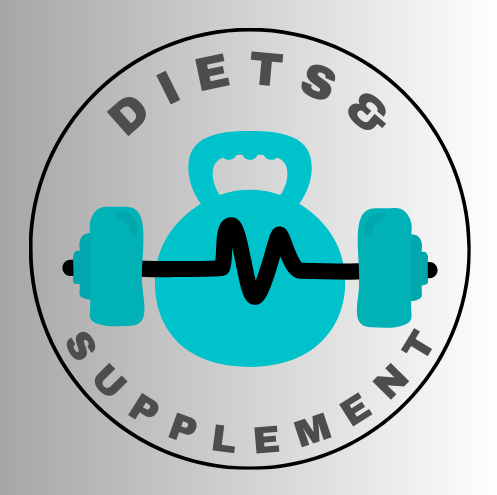 I get it; muscle building is your goal, and you’re exploring every avenue to achieve those gains. Supplements are a tempting shortcut to beef up, but it’s crucial to peel back the hype and look at how these products fit into muscle growth. They are not magic potions; instead, think of supplements as potential allies in your fitness regime. In this section, I’ll clarify how supplements compare to whole foods and confront some common myths head-on.
I get it; muscle building is your goal, and you’re exploring every avenue to achieve those gains. Supplements are a tempting shortcut to beef up, but it’s crucial to peel back the hype and look at how these products fit into muscle growth. They are not magic potions; instead, think of supplements as potential allies in your fitness regime. In this section, I’ll clarify how supplements compare to whole foods and confront some common myths head-on.
Let’s tackle a truth many newcomers to fitness don’t always grasp: supplements don’t replace a poor diet. Your daily meals are the bedrock of your nutrition; supplements are just that—the supplement. Whole foods provide a complex range of nutrients that work together harmoniously. They bring to the table a synergy that isolated nutrients in supplements can’t always replicate.
Now, onto the myths. Perhaps you’ve heard that to get big, you MUST take supplements. This myth is pervasive, but it’s not accurate. Solid nutrition and a well-designed workout routine are the primary drivers of muscle growth. Supplements can help, but they are not compulsory for everyone.
=====>Try this muscle building routine<=====
As we move forward, remember that supplements are tools in a much larger toolbox. With an understanding of their place in muscle building, let’s move on to evaluate which supplements are backed by science and how they can effectively aid in your quest to build muscle – always assuming they’re paired with the right diet and exercise plan.
The Science-Backed Muscle Builders: What Works?
If you’ve navigated the realm of fitness advice, you know it’s replete with claims about the latest must-have supplements that promise to pack on pounds of muscle. My goal here is to cut through the noise. I’ll only discuss what science has to say about the supplements that have a substantial body of research backing their efficacy.
Protein powders are practically synonymous with muscle building. They’re popular for a reason: protein is essential for muscle repair and growth. When you stress your muscles during a workout, they need the right building blocks to rebuild stronger. Whey, casein, and plant-based proteins can fill that gap, especially when whole food sources aren’t available.
Creatine monohydrate stands out in the supplement space. It’s been researched extensively and has shown to improve strength, increase lean muscle mass, and help muscles recover more quickly during exercise. This means you could potentially lift heavier and work out longer, which naturally leads to more significant muscle gains over time.
Then we have branched-chain amino acids, or BCAAs, which include leucine, isoleucine, and valine. These are essential amino acids the body can’t produce on its own. BCAAs are often touted for their role in muscle protein synthesis and reducing muscle soreness post-exercise, though some research suggests their benefits might not be as significant for those who already consume adequate protein.
While these supplements may offer benefits to your muscle-building journey, it’s crucial to address potential side effects and risks. Consuming high amounts of protein over a prolonged period, for instance, might strain the kidneys in individuals with preexisting kidney conditions. And although creatine is generally considered safe, it can lead to increased water retention, which some might perceive as undesirable.
Now, armed with knowledge about what works, the next step is to ensure you’re choosing quality products that will support, not hinder, your health and fitness goals. In the following section, I’ll give you valuable insights into the scrutiny of the supplement market to help you make informed, safe choices.
Navigating the Market: Choosing Quality and Safety
When I’m scouring the market for muscle-building supplements, my number one priority is safety. I prioritize products regulated and reviewed to ensure they meet stringent quality standards. Now, it is important to note that the FDA doesn’t approve dietary supplements for safety and effectiveness before they hit the shelves. However, manufacturers are required to produce safe products and claim truthfulness without FDA verification.
To avoid throwing your money down the drain or compromising your health, here’s what I do: I look for products that have been third-party tested. Organizations like NSF or USP conduct such testing and provide certification. Seeing their seal of approval gives me confidence that what’s on the label is actually in the bottle.
Another step I take is reading labels meticulously. It’s not just about the flashy front label; the real story is often told in the fine print. You’d want to steer clear of supplements with a laundry list of ‘other ingredients’. Minimal additives typically mean a cleaner product. I also keep an eye out for any banned substances – a must if you’re an athlete.
Customer reviews and endorsements can also be insightful but require a keen eye. Authentic review sources and unbiased user experiences help me gauge the supplement’s real-world efficacy and possible concerns. However, I stay wary of overly promotional content or reviews that sound too good to be true.
Quality matters, and often you get what you pay for with supplements. Cheap may be kind on your wallet, but not always on your health. Compare prices, but also consider the brand’s reputation, transparency, and the sourcing of their ingredients.
Integrating Wisdom: Personal Experiences with Muscle Building Supplements
I find real-world stories and experiences offer invaluable insights when it comes to supplements. They help break down the theoretical into the practical. Speaking with gym veterans and those who’ve been on their fitness journey for a while gives a clearer picture of what to expect.
It’s not just about the supplement itself but how it fits into various lifestyles. Everyone’s body is different, and so are their responses to supplements.
Some individuals swear by their supplement routine, attributing their gains to a disciplined regimen including their trusted powders or pills. On the other hand, there are others who’ve achieved impressive results with minimal reliance on such products, focusing more on natural sources of nutrition.
Despite the varied approaches, one common piece of advice stands out: supplements are most effective when used to complement a well-rounded diet and consistent exercise plan. They are not magic pills, but tools that can enhance the hard work put in at the gym and the dinner table.
Safety should never be sidelined for the sake of muscle growth. Regular health check-ups and staying informed about the latest research can help in making educated decisions and keeping one’s health the top priority.
Remember, achieving your muscle-building goals is a marathon, not a sprint. It takes commitment, time, and a willingness to listen to your body. Supplements may be part of the equation, but they’re not the only factor. Balance is essential.
